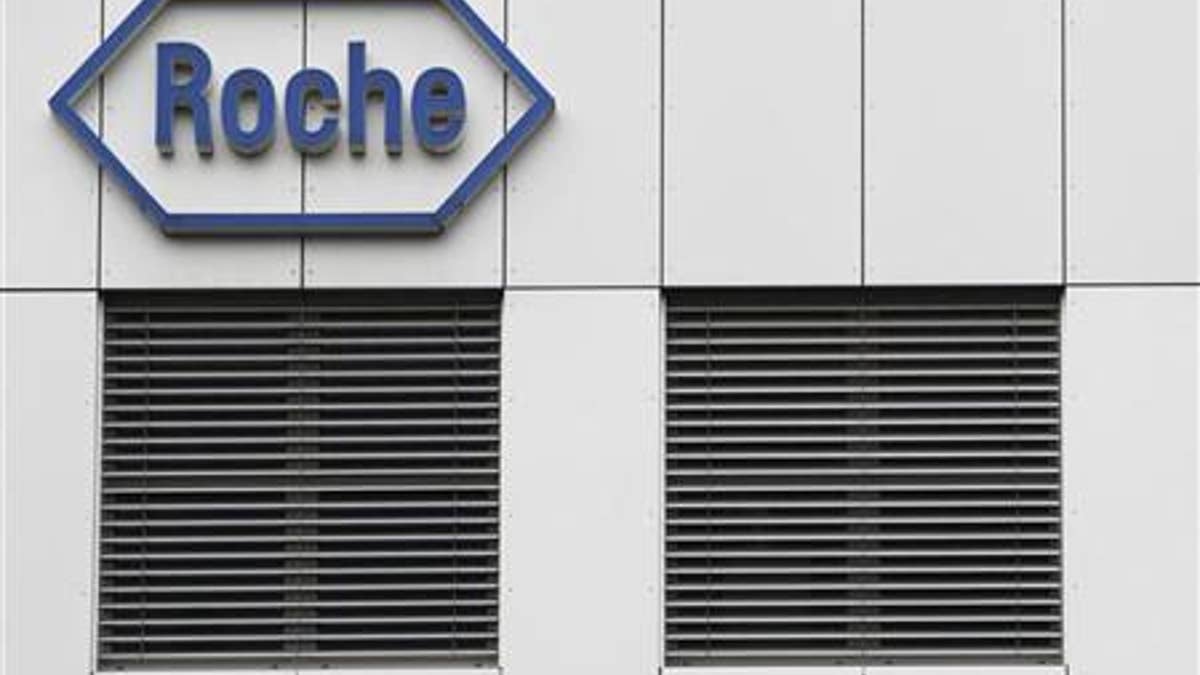
(Reuters)
Extending treatment with Roche's breast cancer drug Herceptin to two years from the one year current standard is not worth while, trial data showed on Monday, but shortening treatment to six months also looks unlikely to benefit patients.
The results of two keenly-watched studies on Herceptin, known generically as trastuzumab, banish a downside risk for Roche, but also limit its ability to squeeze more value out of the lucrative drug before it loses its patent from 2014.
Analysts had said the Swiss firm, the world's biggest maker of cancer drugs, could lose up to $1.5 billion in revenue from the blockbuster medicine in the medium term if six months treatment had been shown to be just as effective.
Herceptin, which was first approved in 1998 and had 2011 sales of 5.25 billion Swiss francs ($5.5 billion), is a treatment for around a quarter of breast cancer patients who have tumors that generate a protein called HER2, which tends to make their disease more aggressive.
Roche conducted a study called HERA investigating the benefit of using Herceptin for two years rather than one, while an opposing French study called PHARE looked whether patients get the same benefit from just six months.
Data from both trials were presented at the European Society of Medical Oncology (ESMO) conference in Vienna on Monday.
"The key message for 2012 is that one year of treatment with trastuzumab remains the standard of care for HER2 positive early breast cancer patients," said Richard Gelber, a professor at Harvard Medical School and Dana-Farber Cancer Institute in Boston in the United States, who led the HERA trial.
Shares in Roche were trading up 1.3 percent at 178.1 francs by 3.15 a.m. EDT.
No black and white answer
Presenting the PHARE study, Xavier Pivot of the University de Franche Comte in France, said the results were "inconclusive" but showed a "trend in favor of 12 months treatment" rather than six months.
He said his team was carrying out deeper analysis of the data and would present more results in December, but added:
"The results probably won't give a black and white answer and the researchers will probably need to look at subsets of patients to see who benefits from six months of treatment and who should get a full year."
As well as comparing 24 months with 12 months of treatment, Gelber's trial also compared the benefit for patients not taking Herceptin to those taking it for a year.
These confirmed, he said, that the drug "is a very effective treatment, reducing the risk of disease recurrence and death by one quarter compared to not using trastuzumab."
Roche's head of global product development Hal Barron said the HERA results answered an important question "and support current medical practice".
Martine Piccart, who chairs the Breast International Group which carried out the HERA trial, added in a statement:
"It's essential that our clinical trials help us understand just how long patients need to receive a particular treatment.
"These results give us both the evidence and the reassurance that it's not necessary to give patients with early-stage HER2 positive breast cancer Herceptin for more than one year."
The Swiss drugmaker is also due to present new data on Monday on its experimental "armed antibody" drug known as TDM-1 as a treatment for HER-2 positive breast cancer.
TDM-1 combines Herceptin with a derivative of a powerful type of chemotherapy and is designed to reduce the unpleasant side effects of cancer treatments.
